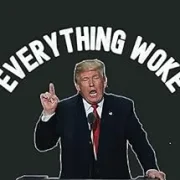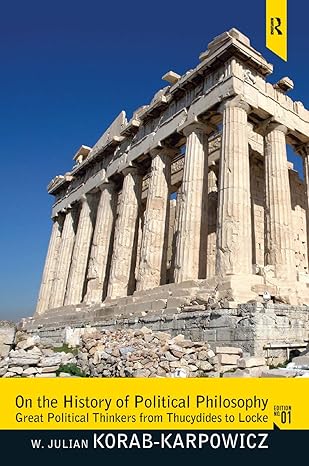During election cycles, when Americans are most concerned about politics, they are the least concerned about political theory. That is appropriate. In the Nicomachean Ethics, Aristotle distinguished between the two, drawing a sharp distinction between political action vs. political theory.
Political action, Aristotle argued, is concerned with seeking “to gain power and honors, or at least, happiness for the politician himself and for his fellow citizens.” While Aristotle clarifies that political actions can rise to the level of virtue, such activities remain limited to instrumental goods and are “not choiceworthy for their own sake.” But such is not the case with political theory or philosophy, which “is clearly sought as being different.” The chief difference between political activity and political philosophy lies in the fact that the latter is a proper object of leisure, which for Aristotle means that it is valuable for its own sake and not merely as a means to other ends.
While political philosophy clearly has practical ramifications, those ramifications are not where it derives its legitimacy. Rather, the legitimacy of political philosophy is rooted in the search for wisdom and the quest for truth, which remain valuable pursuits in themselves regardless of how such pursuits will benefit us.
Aristotle’s contrast between political activity and political philosophy seems to suggest that to achieve success as a philosopher, one must maintain a critical distance from the swirling chaos of political activity. In the most practical terms, that might mean spending less time on the daily news cycle, and more time thinking about the ultimate questions of political theory.
But we don’t need Aristotle to tell us this. Just observe your circle of friends: if your experience is anything like my own, I’m guessing that those friends who are most caught up in the latest dramas of political activity are the least interested in questions of political theory, while those most keen to pursue the questions of political philosophy likely have a healthy disinterest for most of what passes as “politics.”
Aristotle, a firm believer in the experimental method, would no doubt be interested to learn the insight from contemporary neuroscience. We now know that the daily cycle of political news appeals to our passions by exciting the lowest and most primordial part of the brain, the amygdala. This puts us in fight-or-flight mode, ready for action. This action-readiness is useful to those persons, institutions, or corporations wishing to mobilize us for political agendas. By contrast, political theory—especially when it has an abstract quality—appeals to the higher cognitive functions in the frontal cortex. Since this more sophisticated brain activity helps mute the effects of the amygdala, one might argue—in my view convincingly—that political theory is part of the solution to unhealthy interest in the daily cycle of political activity. Spend long enough in the timeless questions of political theory and you will find yourself less interested in the constantly changing time-bound drama of ideology.
If one wanted to take a conspiratorial turn, one might argue that the institutions and corporations who most stand to gain from activating the lowest part of our brain with “news,” stand to lose the most if large numbers of citizens would take an interest in the abiding questions of political philosophy.
But what are some of these abiding questions? The objects of political philosophy include such timeless questions as:
- What is the nature of justice?
- What are the factors that give cohesion to human community?
- Do some human beings have natural authority over other human beings?
- Is there such a thing as the common good?
- What does it mean to be free, both as an individual and as a community?
- Under what conditions can war be justified?
- Is virtue merely private?
- What does it mean to be human, and how does this impact our understanding of the political community?
These types of questions attempt to find out what is normative, which is to say, the patterns and principles that elevate political truth-claims beyond mere opinion. Such normative inquiry is necessarily upstream to the types of issues we usually think of as “political” (i.e., questions like tax reform, healthcare, foreign policy, the latest legislative agenda, etc.) Yet questions of political philosophy inform the pragmatic questions of political activity and provide a context from which to adjudicate between competing proposals. For example, one cannot really determine if a healthcare proposal is “just” if one has not first inquired into the nature of justice. Similarly, one cannot really assess if a certain tax is aligned with the common good, if one has not explored the nature of the good.
This does not mean that one has to first settle on the normative questions and then go out and apply that to the world. That is the error of political rationalism, and we get glimpses of that in Plato, whose political speculations always had a strong a priori character. The best political thinkers have kept a strong prudential element to their thought, approaching the timeless principles of philosophy within the context of the changing contingencies of time and space.
But the modern dilemma is the opposite of political rationalism. We try to address these purely political questions without ever backing up to examine the deeper philosophical questions in which the practical issues are necessarily situated. Modern politics thus sets itself up with the impossible task of trying to do policy without doing philosophy. The result is all around us: a public discourse that has collapsed into political theater, and the swallowing up of normative questions into ideology, together with the pervasive assumption that politics is just a matter of opinion.
Here is how W. Julian Korab-Karpowics describes the modern predicament in On the History of Political Philosophy:
“The modern era is not only marked by…new normative theories of politics but also by the decline of political philosophy as normative political theory into ideology. While the former is ultimately motivated by the desire to know reality (and this is related to its impartiality, reflective openness, and critical distance), the latter represents a limited, often dogmatic, partisan worldview that is intended to persuade and manipulate political actors. The chief motive behind ideologies is not really to search for truth, but to achieve definite goals. In them, political action overcomes rational investigation. Hence, in a sense, they represent a departure from rationality, one of the key elements of Western Civilization.”
Further Reading



